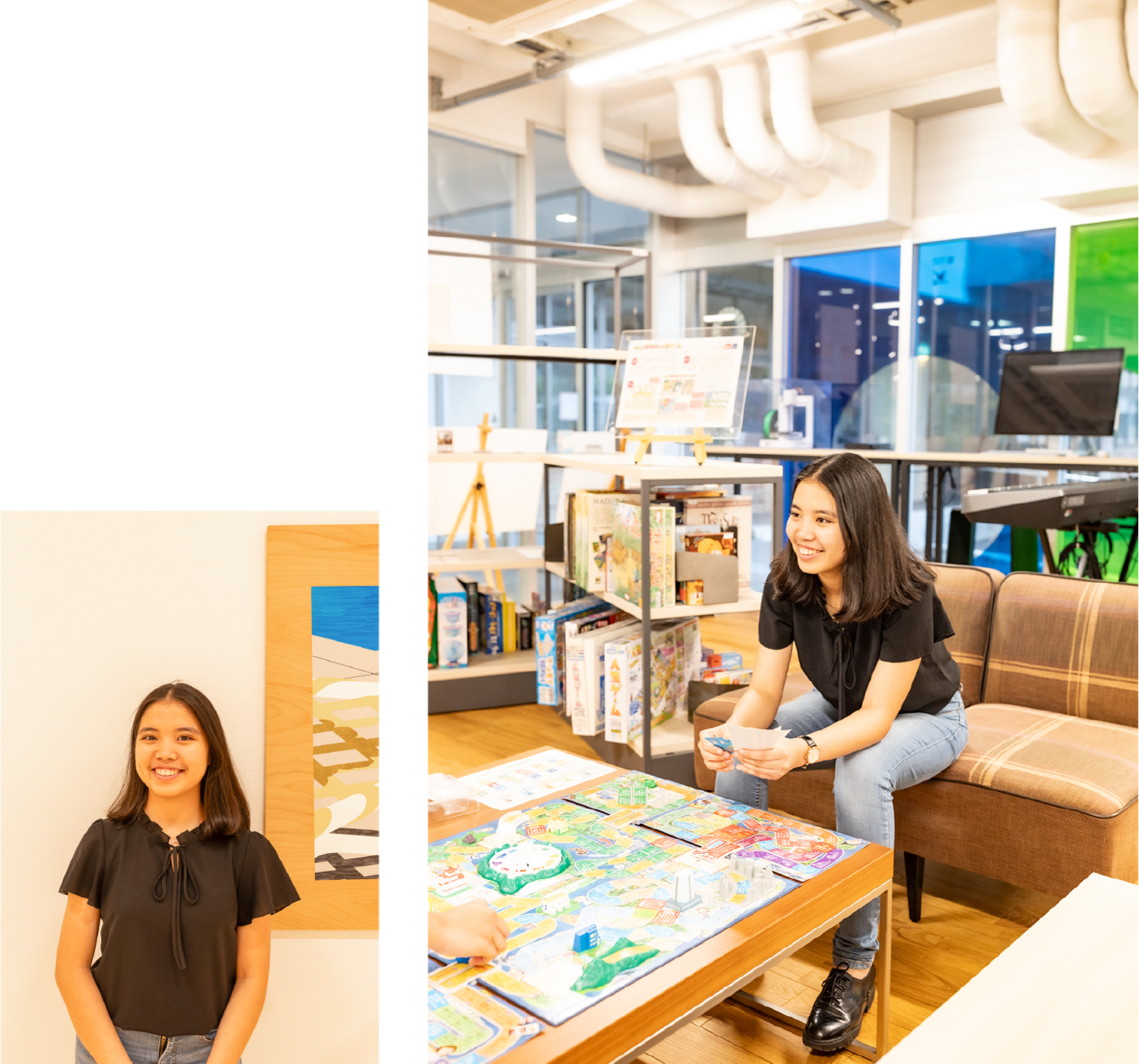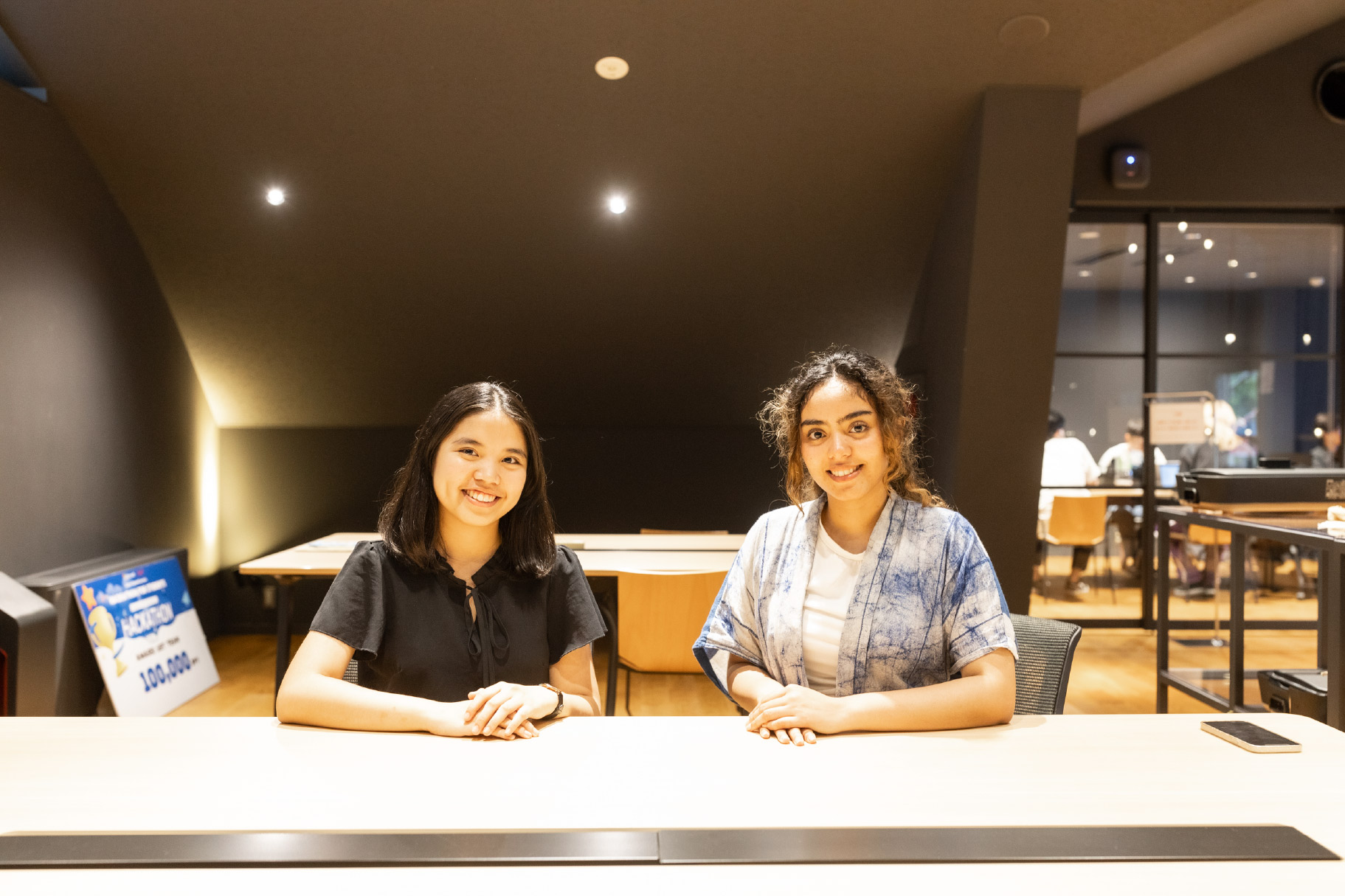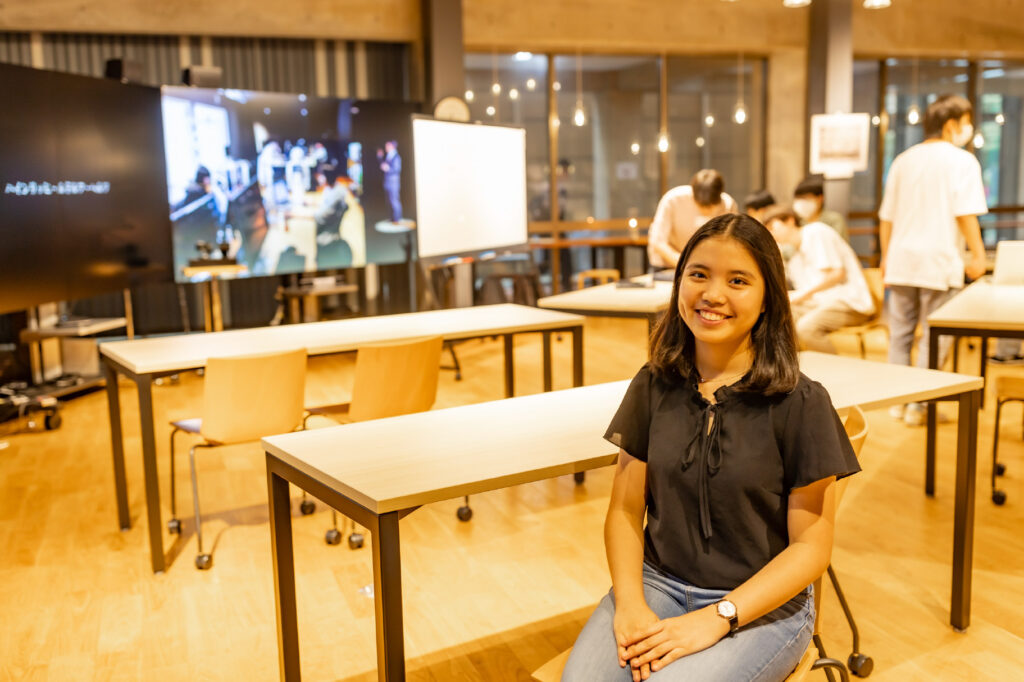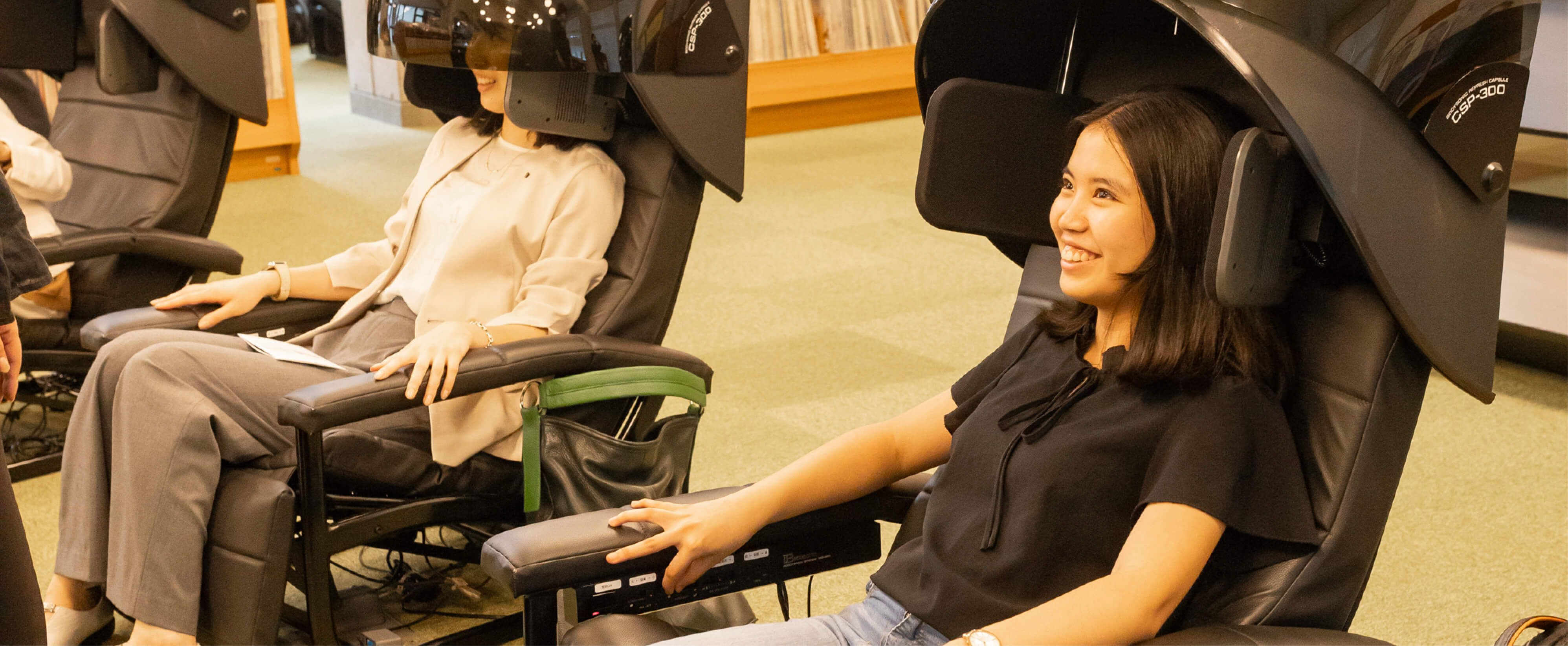Amanda Rosario Josephine
Studying in Japan: Navigating Challenges and Aspiring Toward a Career in Bioscience.

Originally from Indonesia, graduated from Himeji International School and then enrolled at Kanazawa Institute of Technology. Currently studying applied bioscience with the goal of becoming a researcher.

Why did you want to come to Japan?
Since childhood, I’ve been fascinated by Japan’s technology and medical advancements. This interest inspired me to study there, as I believe it will enhance my skills and knowledge compared to Indonesia.

What was the best part of your study abroad experience?
My first trip to Japan was fantastic and eye-opening. I enjoyed meeting Japanese students and learning about their culture, from traditions to daily life. Living in the dorms, I observed their interactions, watched shows like “Nihongo Pattabhi Ewbank,” and cooked takoyaki together. I appreciated the serene environment more than the hustle of cities like Tokyo and Osaka, which helped me relax and feel calm.

How did you feel about the classes and curriculum at Himeji International School, especially the liberal arts courses?
The classes I took were quite different from those in Indonesia. Liberal arts programs were not offered at my home school, and one of my courses focused on making soap with natural ingredients, which connected to environmental sustainability and the Sustainable Development Goals (SDGs). Although my Japanese was not efficient at that time, I found it to be a valuable learning experience. Additionally, the etiquette lessons taught me important manners, such as how to communicate respectfully and bow correctly, which are essential in my current job.


What were the most impressive events you experienced?
There were two memorable events. The first was the cultural event,” Bunkasai”, where we prepared Indonesian songs and traditional performances. The second was being part of the Mandolin Club. Despite the tiring daily practice, it had a significant impact on me as I love music and learned to play the mandolin for the first time.

Were there any aspects of Japanese culture or customs that surprised you?
Not many, but one thing that shocked me was the concept of public baths or onsens. In Indonesia, communal bathing is unheard of outside of family members. Initially, it felt strange, especially in the dorms where we had to bathe together. However, it was interesting to experience this different aspect of Japanese culture.

Did you face any difficulties in your studies, particularly with Japanese? Did you feel any achievements?
Yes, studying Japanese was challenging, especially memorizing kanji and new vocabulary, and grasping the different grammar rules. However, with the help of our teacher, Hugo Sensei, we managed to overcome these difficulties. Passing the JLPT N3 was a significant achievement that made us feel our hard work had paid off.

Will you share with us what you’re currently studying and your future goals?
I am currently studying applied bioscience, and my goal is to become a researcher in fields related to the brain or cells. I’m still deciding between the two, but they are closely related. I’m currently involved in a cancer cell experiment program through KIP, which has deepened my passion for research.


Do you have any advice for people who want to study abroad in Japan?
Learning Japanese can be tough, especially for those whose native language is very different, like Indonesian. However, the learning process itself helps us grow. Even when you feel like you can’t communicate, keep pushing forward. There will always be people to help you along the way. Enjoy life in Japan, even when it feels lonely, the experience will make you stronger and more independent, which will be beneficial in the future.

Admissions
To help you learn more about our school, please complete this online form and one of our admission team members will contact you as soon as possible.
Contact
